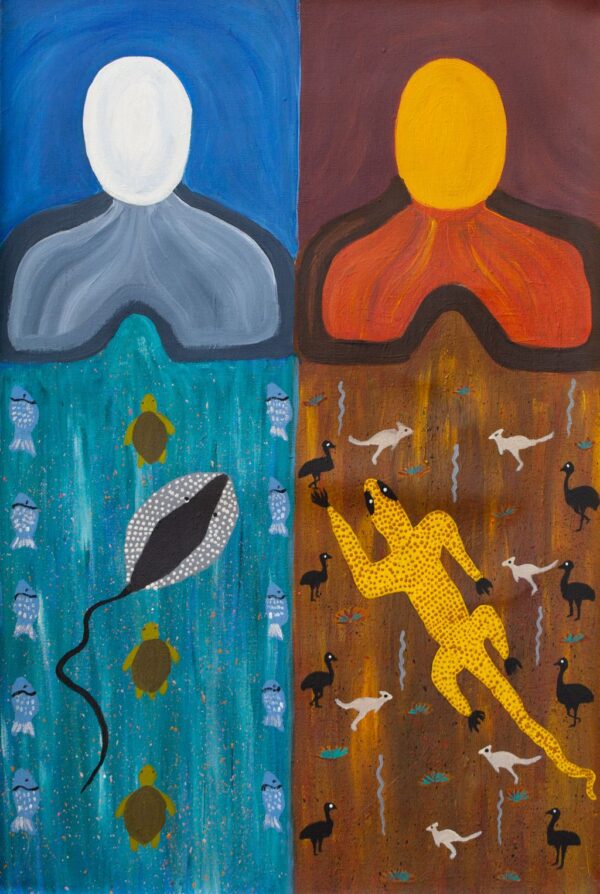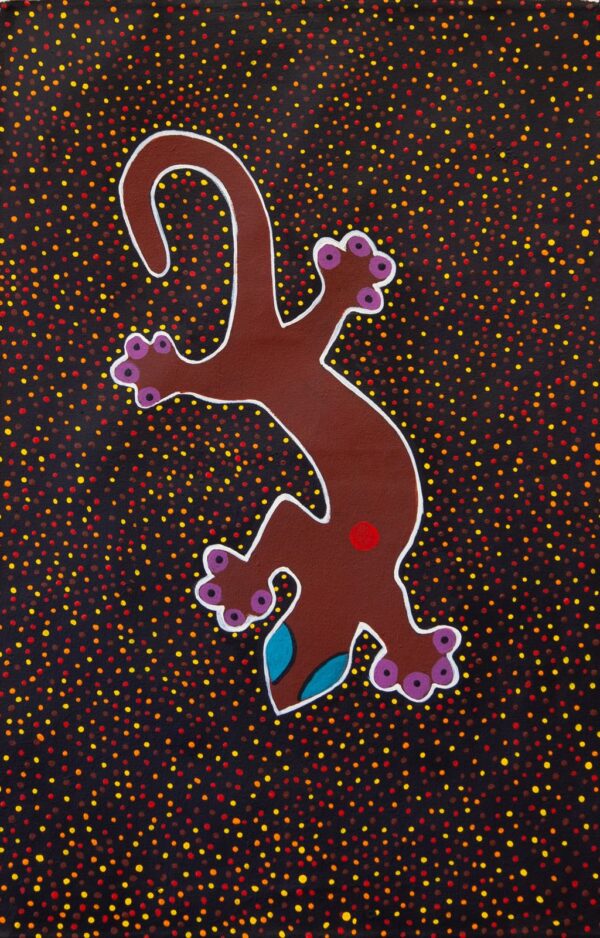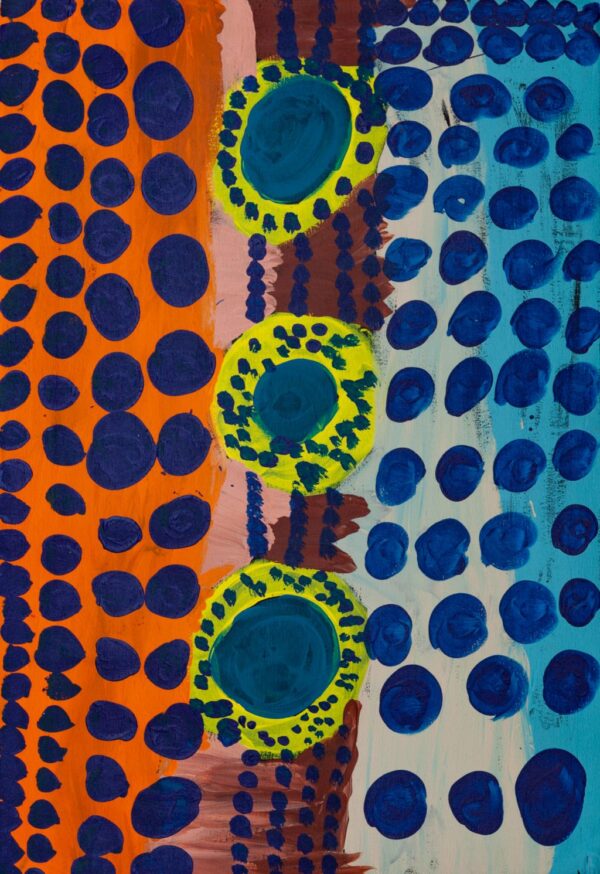$395.00 Original price was: $395.00.$237.00Current price is: $237.00.
1 in stock
Karen Jones
Acrylic on Canvas
46 x 61 cm
Year: 2024
24-1260
Kartarru (Blue Hills Station, Canning Stock Route Well 24)
At Kartarru (Blue Hills Station, Canning Stock Route Well 24), located northeast of Kumpupirntily (Kumpupintily, Lake Disappointment), good drinking water is reliably available, and minyarra (bush onion) grows in seasonal abundance. For these reasons the site was a popular camping area during the pujiman (traditional, desert dwelling) era.
Kartarru features as a site in two important Jukurrpa (Dreaming) narratives, Wati Kujarra (Two Goanna Men) and Minyipuru (Jakulyukulyu, or Seven Sisters). During their epic journey across Australia the Minyipuru danced at Kartarru after stopping at Kaalpa (Kalypa, Canning Stock Route Well 23).
Kartarru is also the site of the old Blue Hills Station. Blue Hills Station, now abandoned, was a small Martu cattle outstation established in the post World War II years. The station was famously run by Putijarra Martu, Tommy Ingebong.
The intersection of the Canning Stock Route with Kartarru also made this a site of early contact with Europeans for many Martu then living a pujiman life in the desert. Following the route’s construction, Martu encountered Europeans and other Martu working as cattle drovers as they would travel up and down the Stock Route from water source to water source. Increasingly, pujimanpa (desert dwellers) followed the route to newly established ration depots, mission and pastoral stations. They were drawn to the route in search of food, by a sense of curiosity, or by loneliness. By the late 1950s and early 1960s, most of the desert family groups had left the desert. Eventually, these factors combined with an extreme and prolonged drought in the 1960s to prompt the few remaining pujimanpa to move in from the desert.




Sign up to Martumili Artists’ mailing list to receive artist news, special offers, and shop updates.




Martumili Artists warns visitors that our website includes images and artworks of Artists who have passed away which may cause distress to some Indigenous people.
Martumili Artists acknowledges the Nyiyaparli and Martu people as the Traditional Owners of the land we live and work on. We also acknowledge the Traditional Owners throughout our country and our Elders; past, present and emerging.